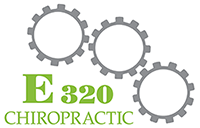SHARE THE LOVE
As a brand-new parent, you’re doing everything possible to give your baby the best start in life. You’ve researched the safest car seat, planned the perfect sleep setup, and chosen the most nourishing way to feed them.
But there’s one thing most parents never hear about—yet it may be one of the most important decisions you make in those first few days.
Birth, even under the most natural circumstances, is physically intense. And in our modern world, it often involves interventions that place incredible stress on a newborn’s delicate spine, brainstem, and nervous system—the very system responsible for everything from sleep and digestion to immune function and emotional regulation.
Let’s take a closer look at why that matters—and what you can do about it.
Birth Is More Physically Demanding Than We Realize
Today, nearly one in three births in the United States end in C-section. But even vaginal births often include interventions like induction, vacuum extraction, forceps, or intense manual guidance. These interventions, while sometimes medically necessary, can create significant stress on a newborn’s head, neck, and spine.
Even without intervention, birth itself places pressure on the infant’s upper cervical spine and nervous system. That tension—called subluxation—may not be visible, but it can disrupt communication between your baby’s brain and body.
The result? A wide range of symptoms in those first few weeks that most pediatricians call “normal” but may actually be your baby’s nervous system calling out for help.
What Those “Normal” Baby Challenges Might Really Mean
If your newborn is experiencing:
- Difficulty nursing or latching
- Reflux, colic, or digestive troubles
- Trouble sleeping or staying asleep
- Tightness in the neck or a head that favors one side
- Excessive crying or hard-to-soothe behavior
…it could be more than just a phase.
A study published by the American Osteopathic Association found signs of somatic dysfunction (another term for subluxation) in 99% of newborns—even those considered “healthy.” And the likelihood increases significantly with longer labor, difficult deliveries, or assisted births.
While traditional pediatric care doesn’t address subluxation, a chiropractic assessment can identify these patterns early—before they lead to chronic issues down the line.
Why Early Detection and Correction Matters
When subluxation is present, it can cause more than just immediate feeding or sleep issues. Because the upper neck and brainstem house critical structures for motor development, digestion, emotional regulation, and immune function, interference in this area can set the stage for developmental delays as your baby grows.
Problems with gross and fine motor skills, speech delays, and difficulty meeting milestones may trace back to this early stress.
And the reason it can be so impactful? Your newborn’s muscles haven’t developed yet. They have no way to protect themselves from the forces of birth, which means the brainstem and upper spine are especially vulnerable in those first moments of life.
Understanding Subluxation in Infants
Subluxation in your baby’s neurospinal system involves three key components:
- Misalignment: Gentle but significant shifts in spinal alignment, especially in the upper neck. These can affect cranial nerves responsible for sucking, swallowing, and muscle tone—leading to latching difficulties, torticollis, or flat spots on the head.
- Fixation (Restricted Motion): Reduced movement in the spine limits the sensory input your baby’s brain receives, which is critical for developing motor skills and balance.
- Neurological Interference: Stress in the nervous system leads to poor regulation—trouble sleeping, digesting, and calming themselves.
Why the Brainstem + Vagus Nerve Matter So Much
The brainstem and upper cervical spine act like an air traffic control tower for your baby’s development. They coordinate all motor tone and neurological communication for the entire body.
Housed within this area is the vagus nerve—a major player in your baby’s ability to rest, digest, and regulate. When this nerve is under stress due to birth trauma or subluxation, the result can be dysautonomia—a disruption of the autonomic nervous system that affects digestion, sleep, immune function, and emotional stability.
This is why so many “common” baby issues—from colic to reflux to sleep struggles—are often rooted in nervous system stress.
What Pediatric Chiropractic Care Actually Looks Like
If the word “chiropractic” makes you nervous when it comes to your baby, don’t worry. Adjustments for newborns are nothing like adult adjustments. They are incredibly gentle—using about the same amount of pressure you’d use to check the ripeness of a peach or press on your closed eyelid.
At E320 Chiropractic, we use technology called INSiGHT Scans to assess your baby’s nervous system and pinpoint areas of tension. From there, we create a personalized, gentle care plan designed specifically for your baby’s needs and stage of development.
Setting the Stage for Lifelong Health
The first year of life is a time of explosive brain growth. Your baby’s brain will form more than a million new connections every second, and every movement, every bit of regulation, every system function depends on clear communication within the nervous system.
By supporting that system from day one, you’re not just helping your baby through challenges like colic or reflux—you’re giving them the foundation for:
- Healthy immune development
- Stronger emotional regulation
- Restful, restorative sleep
- Easier feeding and digestion
- Optimal cognitive and motor growth
Taking the First Step
You don’t have to wait for your baby to “grow out of it.” Many of the most common infant struggles are signs that their nervous system is overwhelmed—and the earlier we support it, the better the outcome.
Call us today at 864-367-6766 to schedule your newborn’s first nervous system evaluation at E320 Chiropractic. If you’re not local to Anderson, SC, visit the PX Docs directory to find a provider near you.
You only get one “day one.” Let’s make sure your baby’s nervous system is clear, connected, and ready to thrive.
